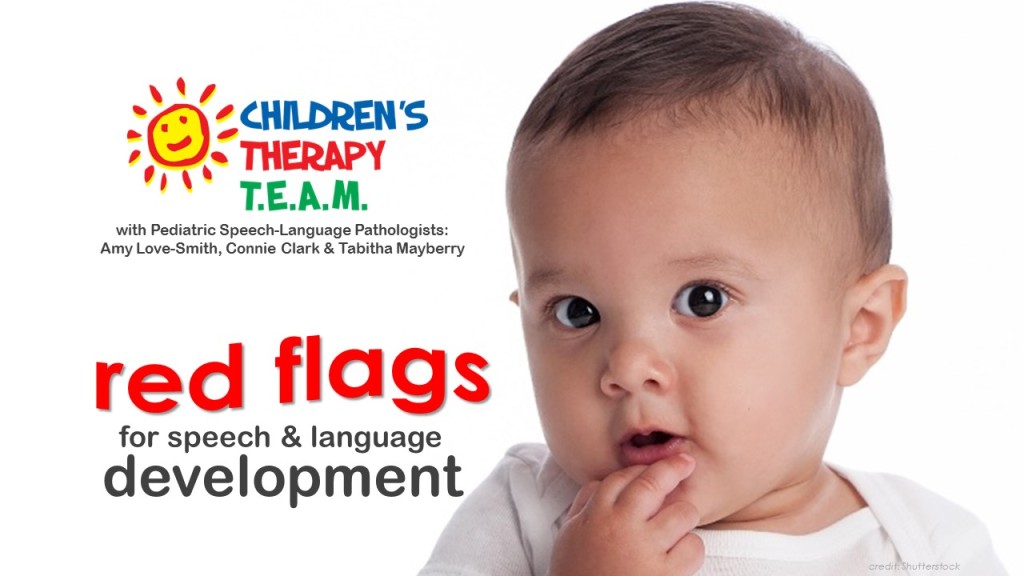
Dear Melissa,
I am concerned that my 1 ½ year old son is only saying a few words and may need to be in speech therapy. I try to search developmental milestones on the Internet, but keep seeing scary stories of language delays being a sign of Autism. How do I know when to be concerned, and what is just a “typical boy”?
Yes, the Internet can be both a blessing and a curse. We want to be proactive parents, yet sometimes too much information can have an adverse effect and cause us to start worrying before it really is time to worry.
When searching for developmental milestone guidelines or checklists, you want to make sure you’re accessing reputable sources. The internet has some great information out there, but it is even better to seek out the advice of a professional who knows your child and knows what should be “normal development” at different ages. Pediatricians and preschool teachers are some of the best resources if you have concerns about your child’s development. Preschool teachers tend to have a good handle on what they typically see in their classroom, as well as which behaviors fall well outside the norm. In addition, your child’s teacher has also had the opportunity to observe your child for many hours at a time over several weeks/months. This helps the teacher to recognize what is an isolated oddity, and what is a pattern of troubling behavior. Pediatricians obviously have a strong understanding of appropriate developmental milestones and can help discuss with you if further evaluation is necessary, or a more “wait and see” approach is more appropriate. The pediatrician is also uniquely qualified to help guide you through the process of which outside referrals are most appropriate for your specific concerns.
Earlier this month, I discussed the developmental “red flags” that an occupational therapist might look at to determine if a child is struggling with fine motor skills, sensory processing, self care, self-regulation, or social skills. Today we are looking at speech-language development and feeding skills, and in the next few weeks, we will talk with our physical therapists about gross motor skills.
This blog’s question about language development just happens to coincide with May being “Better Hearing and Speech Month.” Therefore, who better to ask about speech-language red flags in determining whether a child would benefit from speech-language therapy services than some of our fantastic speech therapists here at Children’s Therapy Team! For this blog, I interviewed Amy Love-Smith, Connie Clark, and Tabitha Mayberry.
Language and social skills:
- Not showing interest in faces of caregivers by 3-4 months
- Not anticipating the actions of others in “peek a boo” by 6 months
- Not babbling by 9 months
- Not attempting to imitate sounds of others by 12 months
- Not pointing to direct other’s attention to items of interest by 1 year
- Not showing interest in playing with others by the end of the first year
- Not regularly adding new words to vocabulary after 1 ½ years (The word “dog” does not count as adding to the vocabulary if the child says “dog” once, and then does not use it again.)
- Not consistently using the words that they have already said and have mastered
- Between the ages of 1-2 years, continuing to use gestures more than words
- Not following simple, familiar verbal directions by around 1 ½ years
- Not combining 2 words together by 2 years (e.g., “My ball.” “No Bath.”)
- Not combining 3 words together by 3 years
- Familiar adults (teachers, parents, grandparents, etc.) not being able to understand the child by 2-3 years
- Not producing all consonant sounds by 8 years (Many sounds, such as “r” and “th” do not even start to emerge until around 5 years, so articulation errors are common before then.)
- Having frequent tantrums and negative outbursts due to not having appropriate language skills at any age.
Those are a few of the social/language “red flags,” but did you know that speech therapists can also work with eating problems as well? From difficulties with chewing/swallowing, to severe “picky eating,” they deal with it all. Here are a few of the “red flags” with regards to eating.
- Unable to synchronize lips and swallowing at birth
- Not opening mouth to anticipate food (bottle/breast) at 2 months
- Requiring more than 30 minutes to consume enough milk to feel full by 4 months
- Gagging when new food textures are introduced (any age)
- Not eating at least 20 different foods by 3 years.
- Diet not generally matching the family’s diet by 3 years.
As a side note: Vegetables are often an acquired taste, and meat is often difficult to chew for pre-school aged children. Therefore, keep introducing these foods, but don’t become worried if your child avoids meat and veggies.
Again, these are not actual lists of developmental milestones. You can find “official” lists from reputable sources by following the links below. The above items are simply things that cause the speech therapist to pause and want to investigate further. Again, if you have questions or concerns, please discuss them with your child’s pediatrician and teachers, or you can call our Family Support Referral Coordinator, Ashley Stewart, 479-521-8326.
Resources:
ASHA: Better Speech & Hearing Month 2016
National Institute on Deafness and other Communication Disorders
OT’s Discuss Developmental Red Flags, Children’s Therapy TEAM Blog, Melissa Foster, May 9, 2016.
